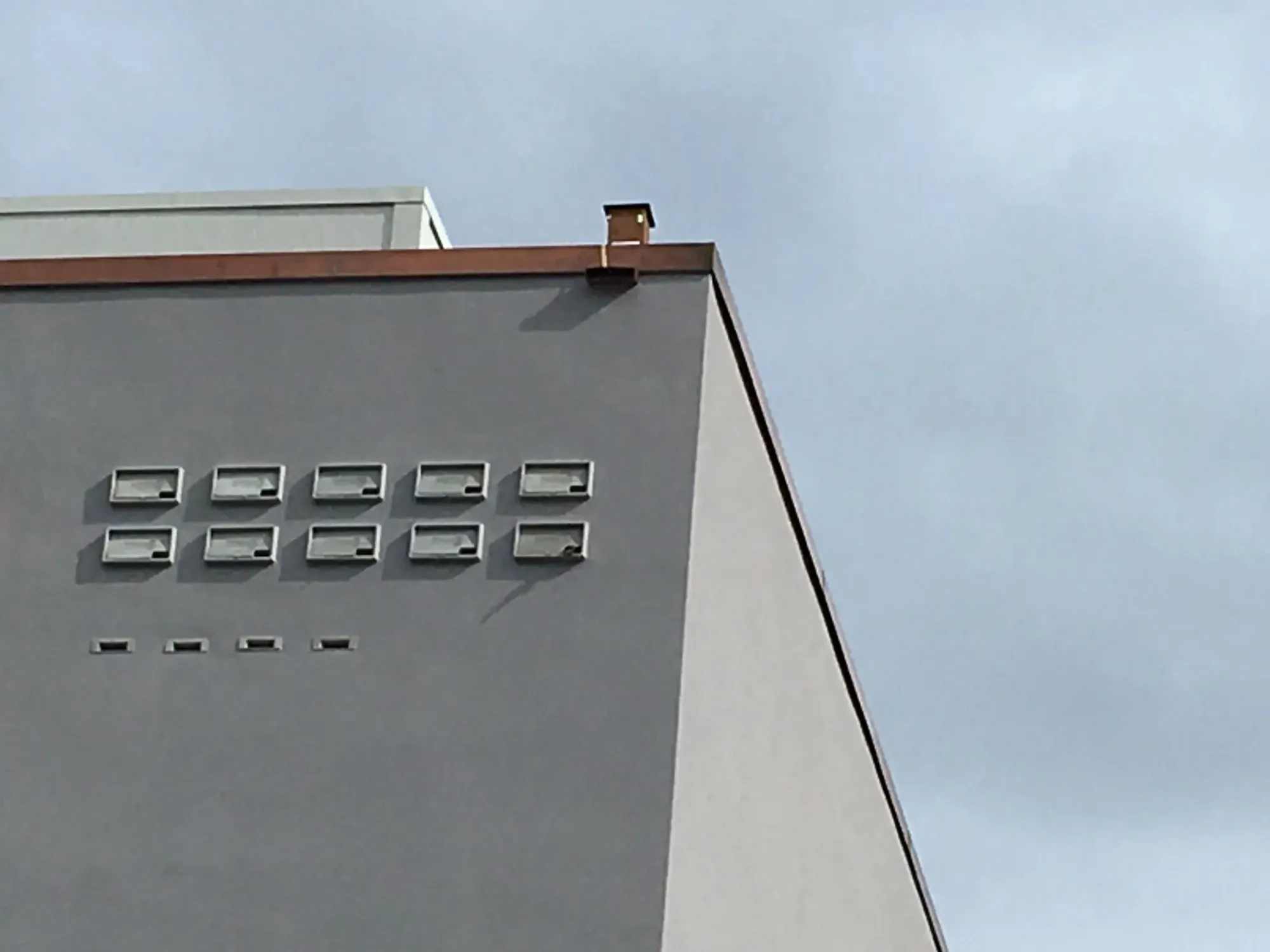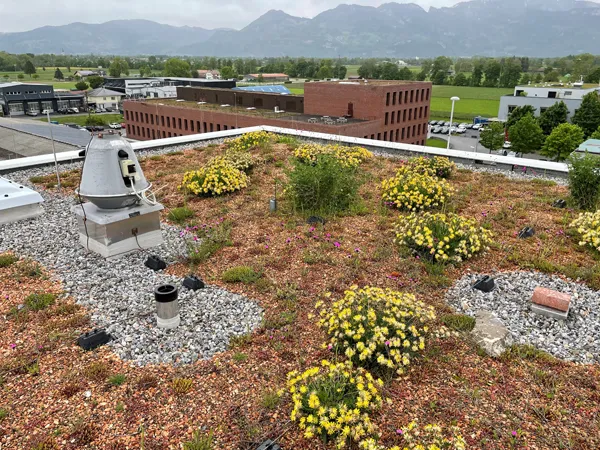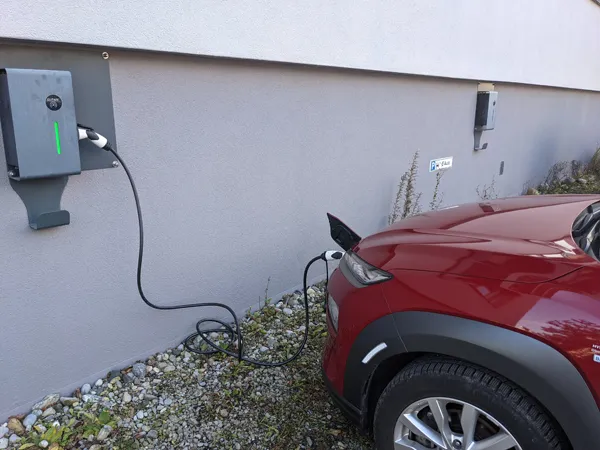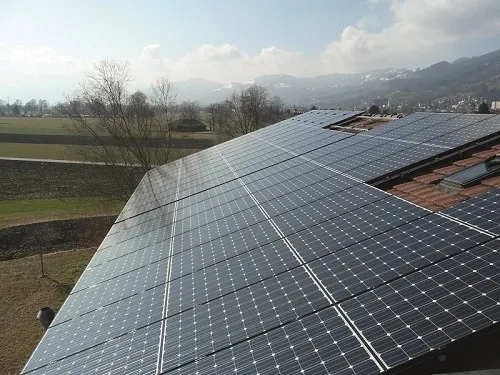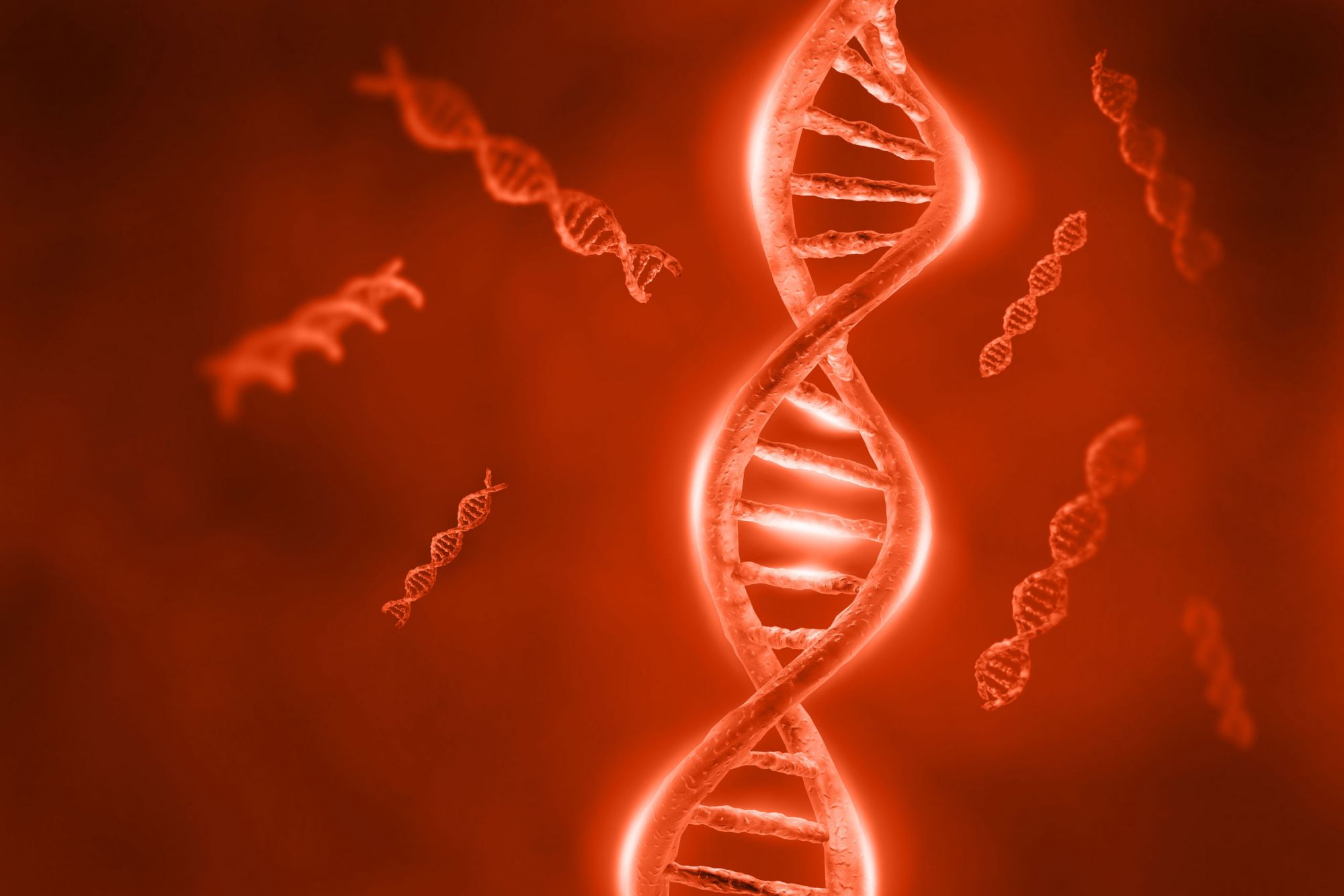
Back to top
Ecological Commitment
At Microsynth, we are committed to acting in an ecologically responsible way. The following examples illustrate the ecological commitment of Microsynth AG and our subsidiaries:
- Our headquarters in Balgach, Switzerland, is a compact, well-insulated, and airtight building according to the Swiss Minergie standard. Native plants were planted on the flat roof of the new building with the aim of providing an appealing habitat for animals and plants. On the roof of the old Microsynth building, we operate a photovoltaic power system featuring an annual power output of approximately 18,000 kWh. Additionally, a photovoltaic power system, estimated to generate approximately 28,000 kWh per year, is planned for installation on the entire south façade of the Microsynth building by 2025. The remaining electricity supply is 100% from renewable energy sources (Naturstrom basic business).
- The immediate environment has been shaped and ecologically enhanced by various structural elements (including groups of trees and woody plants, stillwater areas, boxes for birds and bats, and gaps in the roof) to match the needs and natural habitat of the animals.
- Nesting cavities were strategically incorporated into the façade of the building in Balgach to provide suitable habitats for swifts (Apus apus) and bats, particularly Pipistrellus pipistrellus. To accommodate bats, additional crevices were intentionally created in the roof area. Swifts are highly social birds known for their incredibly fast flight. As long-distance migratory birds, they have a limited breeding window in Europe, typically spanning from early May to late July. Consequently, they rely on readily available breeding sites. These sites are often revisited annually. However, as many old houses with nesting spots disappear and new constructions lack suitable niches, swift populations face mounting challenges.
In 2019, Microsynth integrated 27 breeding cavities into the building's façade specifically for swifts. Since then, five successful broods have been observed in 2022. Ongoing monitoring aims to determine if bats will also colonize the building.
- Our building utilizes 99 energy piles with circulating water, providing efficient and energy-saving heating and cooling. In the summer, it releases heat, while in the winter, it extracts heat.
- Wherever possible, we sort waste material for recycling and we then use the recycled products. Organic solvents needed for synthesis and analytic requirements are collected and eventually disposed of in a safe and environmentally compliant manner.
- Our printed materials are predominantly made from recycled fiber-based paper or FSC-certified paper. All marketing materials printed at external printing shops are printed climate-neutrally.
- Business travel (e.g. customer visits, congresses etc.) is largely done via train (within Switzerland and Austria we travel almost 100% by train). Business trips via airplanes are extremely rare and many of our employees travel to their respective workplaces by bicycle.
-
Sanger sequencing logistics can be challenging. Customers expect convenient sample pickup and fast delivery to sequencing labs. Most providers manage this by running a single facility per continent and relying on express air couriers like DHL or UPS. While effective, this approach has a considerable environmental impact.
Microsynth offers a smarter, greener alternative. In our core markets—Austria, France, Germany, and Switzerland—we operate local sequencing facilities. This allows us to transport most samples using eco-friendly methods such as trains, bicycles, or local couriers. The benefits? Faster turnaround times and a significantly reduced carbon footprint. Only samples from outside these regions are sent via traditional express services.
- The provision of common home office capabilities for business managers beyond the Coronavirus pandemic will lead to a considerable reduction in the daily distances our employees travel by car to their respective Microsynth workplaces.
- All of our electricity comes from renewable sources.
- In June 2024, Microsynth underwent its first EcoVadis rating and achieved a strong sustainability performance, by earning the badge “Committed”. The rating highlights our above-average performance in key areas, including environmental impact, ethical business practices, sustainable procurement, and labor and human rights. EcoVadis, a global leader in sustainability ratings, evaluates over 90,000 companies across 175 countries and 200 industries.
Microsynth and its subsidiaries are constantly striving to achieve further improvements and optimizations in order to produce and analyze as sustainably as possible. Our goal is to minimize resources and waste in our processes and workflows.
